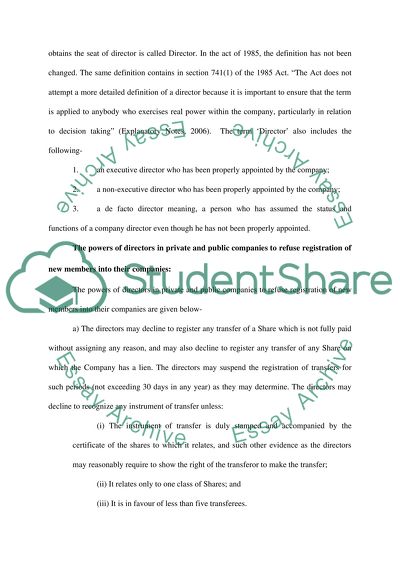Cite this document
(“Company Law: The Powers of Directors in Private and Public Companies Assignment”, n.d.)
Company Law: The Powers of Directors in Private and Public Companies Assignment. Retrieved from https://studentshare.org/law/1502425-company-law-essay
Company Law: The Powers of Directors in Private and Public Companies Assignment. Retrieved from https://studentshare.org/law/1502425-company-law-essay
(Company Law: The Powers of Directors in Private and Public Companies Assignment)
Company Law: The Powers of Directors in Private and Public Companies Assignment. https://studentshare.org/law/1502425-company-law-essay.
Company Law: The Powers of Directors in Private and Public Companies Assignment. https://studentshare.org/law/1502425-company-law-essay.
“Company Law: The Powers of Directors in Private and Public Companies Assignment”, n.d. https://studentshare.org/law/1502425-company-law-essay.


